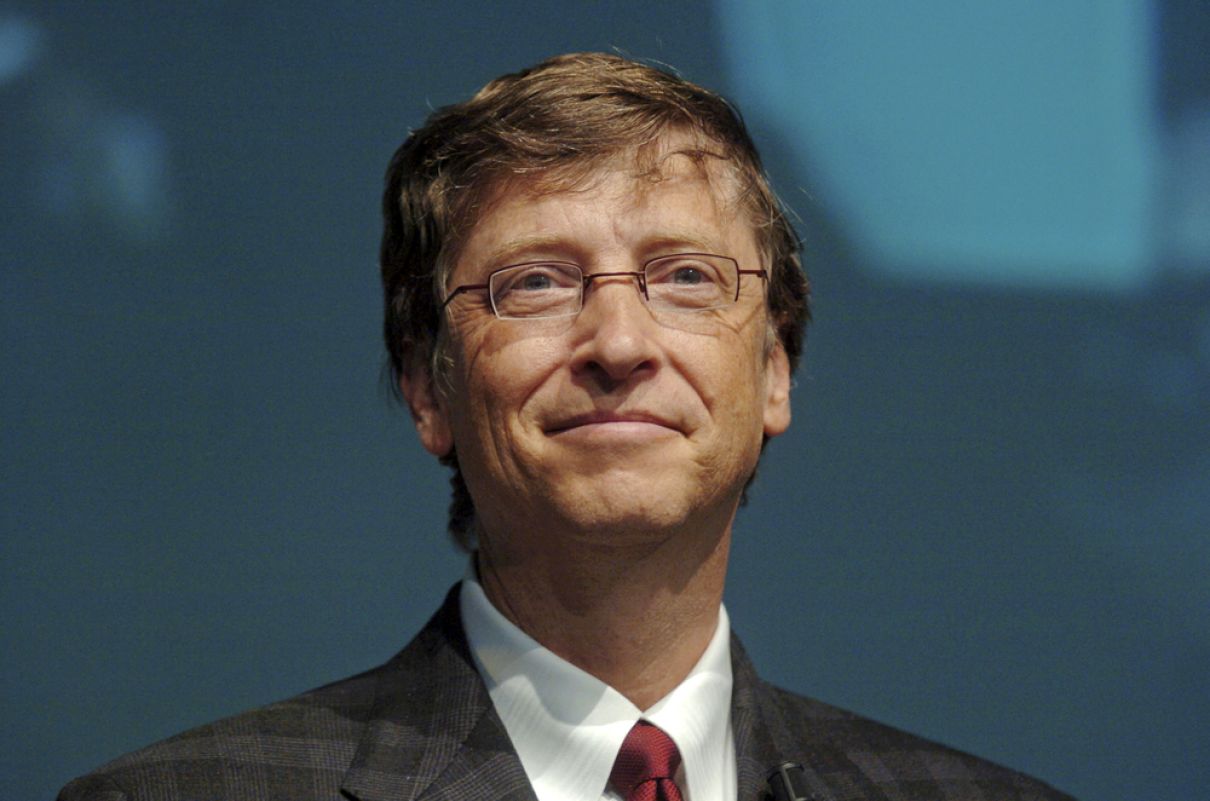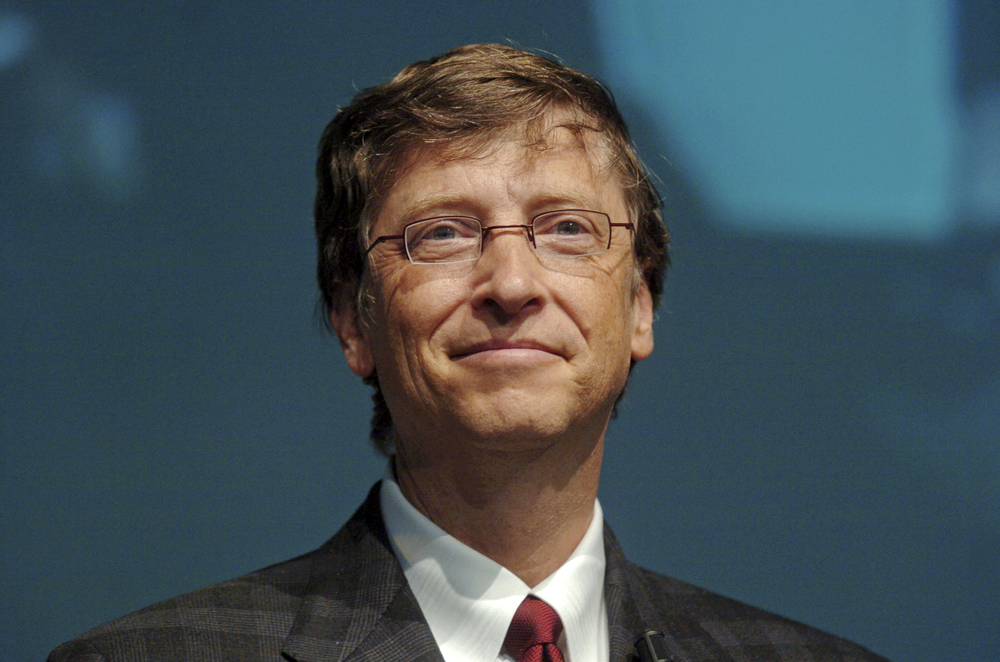Learning Focus From Gates, Buffett and Jobs

The factor they all agree led them to success, was unwavering focus.

In early July 1991, Bill Gates Sr. invited some guests over for dinner. The diners that evening included his son Bill Gates Jr., the founder of Microsoft, and Warren Buffett. These were two of the most successful men in the world, who, for many years, had taken it in turns to top The Forbes World’s Billionaires list. The host asked his dinner guests, “What factor do you feel has been the most important in getting to where you’ve gotten in life?” Buffett immediately replied, “Focus.” Bill Gates Jr. agreed.
Bill Gates
Gates admitted that he had been obsessed with computers since he was 13, “I mean, then I became hard core. It was day and night.” His parents were worried about him, “Although he was only in the ninth grade, he already seemed obsessed with the computer, ignoring everything else, staying out all night.” In the end, they ordered him to give up computers, which he managed to do for about nine months.
In the words of Bill Gates Jr.’s college roommate, Andy Braiterman, “Bill had a monomaniacal quality [...] He would focus on something and really stick with it. He had a determination to master whatever it was he was doing.” One of his ex-girlfriends described him as being extremely focused and intolerant of distractions. He didn’t own a television and had even dismantled his car radio. She elaborates: “In the end, it was difficult to sustain a relationship with someone who could boast a ‘seven-hour’ turnaround—meaning that from the time he left Microsoft to the time he returned in the morning was a mere seven hours.”
Warren Buffett
Warren Buffett, too, had focused on a single goal for decades. According to his biographer, Alice Schroeder, even as a child, his dream was to become rich and he had devoured a book on One Thousand Ways to Make $1,000. “Opportunity knocks,” the reader is told on the very first page of Buffett’s favorite read. “Never in the history of the United States has the time been so favorable for a man with small capital to start his own business as it is today.”
When he was 11 years old, Buffett announced that he would be a millionaire by the time he was 35. At 16, he had already saved up $5,000 from various enterprises. In today’s currency, that money would be worth about $60,000—not bad for a 16-year-old. His prediction was only off by five years. He made his first million by the time he was 30. And, of course, a million dollars was worth a lot more then than it is now.
In everything he does, Warren Buffett maintains a truly intense focus. One of his very few hobbies is playing bridge. Bill Gates had tried to convince him to buy a computer by promising to send the most beautiful woman at Microsoft to teach him how to use it. Buffett refused his offer because he did not see the point in owning a computer.
Only when a friend mentioned that he would be able to play his favorite game online did he change his mind. Buffett insisted that he only wanted to learn about the features he needed to play bridge. Beyond that, he was not interested in computers or any of their functions. He could do his tax return in his head, he said, he didn’t need a computer. But playing bridge on his own — now that he did need a computer for.
He soon grew to enjoy his online games, playing with so much focus and dedication that nothing in the world could have distracted him. On one occasion, a bat flew into his house and started flapping around his den. His girlfriend screamed, “Warren, there’s a bat in here!” But he was so engrossed in his game, he didn’t even look up. All he said was, “It’s not bothering me any.”
After some training sessions with two-time world bridge champion Sharon Osberg, Buffett entered the world championship with her — highly unusual for somebody who had never played in a championship tournament before. Buffett sat down at the table and appeared to ignore his surroundings completely—as if he was the only person in the room. The other players were far more experienced than he was, “but he was able to focus as calmly as if he were playing in his living room [...] Somehow his intensity overcame the weakness of his game,” Schroeder writes. To everyone’s surprise, Buffett qualified for the final of the bridge world championship in his very first tournament. But his extraordinary effort had taken its toll. After focusing so hard for one and a half days, he was too exhausted to compete in the final and had to pull out. He paid the price for his almost superhuman focus.
Steve Jobs
“People think focus means saying yes to the thing you’ve got to focus on. But that’s not what it means at all. It means saying no to the hundred other good ideas that there are. You have to pick carefully. I’m actually as proud of the things we haven’t done as the things I have done,” observed Steve Jobs, the founder of Apple. Jobs established Apple as such a successful company by focusing on a very small number of key products.
“The weakest living creature, by concentrating his powers on a single object, can accomplish something. The strongest, by dispensing his over many, may fail to accomplish anything,” observed the Scottish historian and philosopher Thomas Carlyle.
Recent scientific research has shown that most successful musicians and athletes owe their extraordinary success not to talent as was previously thought, but to a lifetime of dedicated practice or training from early childhood. Many people who haven’t managed to achieve the success they were hoping for blame their bad luck, lack of talent or lack of connections. The truth is that some people are more successful than others mainly because they are better at focusing their mental resources.
Focusing all their strength on one particular spot is what enables skilled karate fighters to smash bricks with their bare hands. Although they have less raw muscle power than weightlifters, martial artists can unleash far stronger punches because they hone their focus on a single point.
About the author:
Dr. Rainer Zitelmann is a historian and sociologist. He is also a world-renowned author, successful businessman and real estate investor. His most recent book - Dare to be Different and Grow Rich : Secrets of self-made people who became rich and successful (http://daretobedifferentandgrowrich.com/), was released in 2019.




